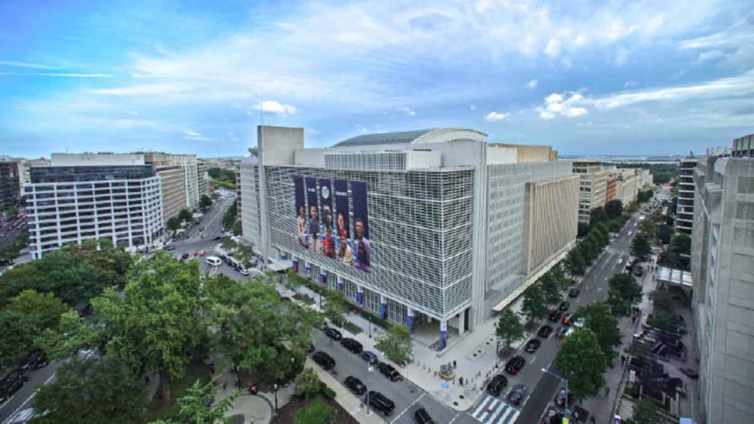Ghana, regarded as one of the largest recipients of Foreign Direct Investment inflows in West Africa registered a 52% decline in FDIs last year, according to the World Bank's latest 2022 International Debt Statistics.
The fall in FDI is however largely due to the impact of Covid-19 on the global economy which the Ghanaian economy was not an exception.
According to the World Banks, FDIs fell to $2.0 billion in 2020, from $3.9 billion recorded in 2019.
This is contrary to data from the Ghana Investment Promotion Center. The GIPC had said that it recorded FDIs of a little above $2.6 billion last year, 139% increase over that of 2019.
“In contrast Ghana, one of the largest FDI recipients in West Africa and the first country on the continent to impose mobility [Covid-19] restrictions, registered a 52% decline in FDI inflows in 2020. They fell to $2.0 billion from $3.9 billion in 2019 with manufacturing, services, and the mining sector all recording a downturn”
However, it is expected that FDIs will improve going forward, from next year, because of further easing of economies globally.
FDIs to sub-Saharan Africa in 2020
Besides South Asia, Sub-Saharan Africa was the only other region to record an increase in FDI inflows in 2020.
They rose on average 20% to $24.3 billion, with many countries recording a rise in inflows in 2020.
FDI inflows to Senegal according to the report rose 39% to $1.5 billion due to increased investments in the energy sector and start-up of work on the largest offshore oil and gas project, the SNE Oil Field, being developed by a consortium of Australian and British companies and Petrosen (Senegal).
Also, inflows to the Republic of the Congo rose 19% to $4.0 billion, propelled by investment in offshore oil fields after a licensing round of available oil blocks in 2019.
In the Democratic Republic of Congo, the World Bank said FDIs increased 11% to $1.6 billion due to rising demand and increased prices for cobalt used in smartphones and electric car batteries.
In Nigeria, the report said long-term policies aimed at FDI diversification took effect and inflows rose 9% to $930 million from several new investments in the non-oil sector, including a food manufacturing facility in the Lekke Free Trade Zone and development of the Lekke Deep Sea Port by Chinese investors.
Inflows to Togo also jumped 72.3% to $639 million largely on account of investment from neighboring countries including $100 million from CimMetal (Burkina Faso) for a construction material plant and $60 million cement plant constructed by Dangote (Nigeria), the report pointed out.
In Angola, the World Bank said a slowdown in repatriation of capital by multinational companies in the oil and gas industry reduced outflows to –$2.0 billion from –$4.7 billion in 2019. In contrast some of the region’s large FDI recipients saw inflows fall in 2020.
In Ethiopia, the largest recipient in Eastern Africa, inflows fell moderately 6%, with continued investment into key sectors like agriculture and manufacturing that offset much of the decline in hospitality and aviation. The government also facilitated FDI for the manufacture of personal protective equipment, and several Chinese companies started production in 2020
Latest Stories
-
Herman Suede is set to release ‘How Dare You’ on April 24
2 hours -
Heal KATH: Kuapa Kokoo, Association of Garages donate 120k to support project
2 hours -
KNUST signs MOU with Valco Trust Fund, Bekwai Municipal Hospital to build student hostel
2 hours -
The influence Ronaldo has on people, Cadman Yamoah will have same on the next generation – Coach Goodwin
3 hours -
Gender Advocate Emelia Naa Ayeley Aryee Wins prestigious Merck Foundation Awards
4 hours -
South Africa bursary scandal suspects granted bail
4 hours -
Ecobank successfully repays $500m Eurobond due April 18
4 hours -
Re: Doe Adjaho, Torgbui Samlafo IV, call for Unity among Paramountcies in Anlo
4 hours -
Extortion and kidnap – a deadly journey across Mexico into the US
4 hours -
Rihanna says fashion has helped her personal ‘rediscovery’ after having children
4 hours -
Development Bank Ghana targets GH¢1bn funding for commercial banks in 2024
5 hours -
Shatta Movement apologises to Ghana Society of the Physically Disabled after backlash
5 hours -
Sammy Gyamfi writes: Tema-Mpakadan Railway Project; A railway line to nowhere
6 hours -
Bright Simons: Is the World Bank saving or harming Ghana?
6 hours -
CAF Cup: RS Berkane banned from entering Algeria because of a map of Morocco with its Sahara
6 hours

